 |
|
SOUTHEAST ALASKA |
||
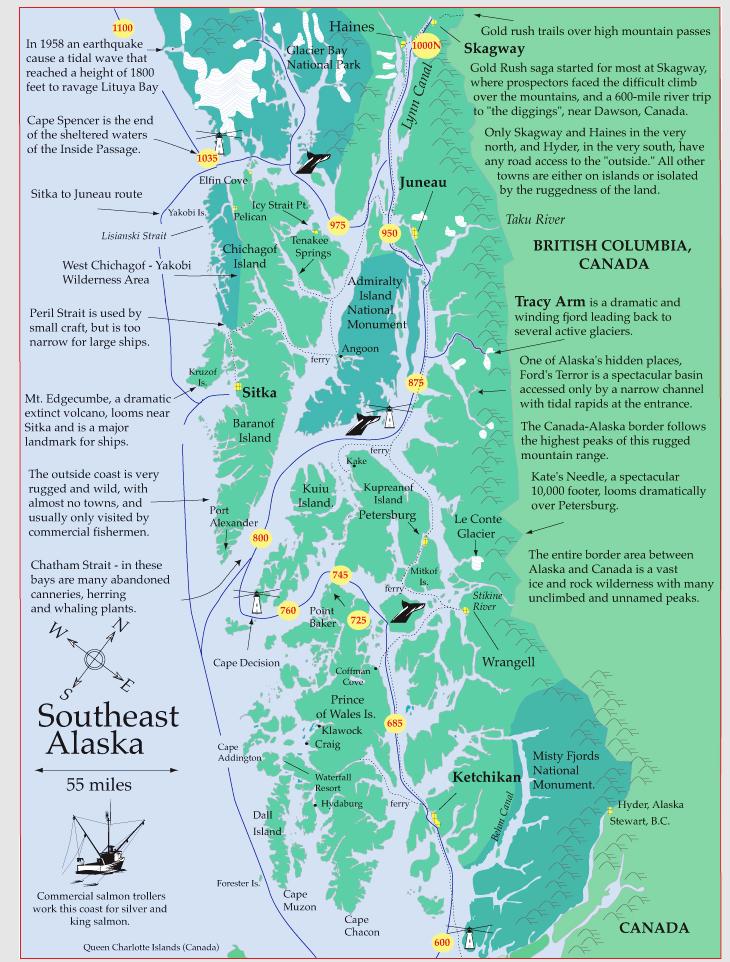 |
||
Roughly the size of Maine, Southeast Alaska is a archipelago of islands with a very few scattered towns and settlements. Most are on either islands or in such steep country that there are no roads in or out and almost everyone comes by plane or ferry. The traditional economy was a mixture of fishing, logging, millwork, government jobs, and tourism. But since the closure of the big mills at Sitka and Ketchikan in the 1980s, and a slump in salmon prices that has only recently been reversed, a bit of a lopsided economy based on tourism has developed in all the big cruise ports except Sikta and Juneau. (In Juneau, the capital, goverment employs many, and in slightly off the beaten track Sitka, with no cruise ship dock they simply get fewer ships and fishing still pretty much drives the town.) |
|||||||||||||
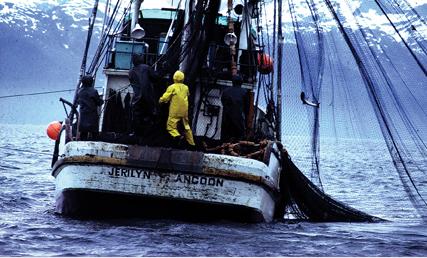 |
|||||||||||||
After a decade or so of low salmon prices that drove many out of business, fish markets are strong and processors and fishermen alike are having good seasons. This is a salmon purse seiner, which uses a crew of 4-5 to set an encircling net around schools of salmon. In 2011, a crew share on a good boat might be 40,000$ plus. A handful of boats caught over 2 MILLION pounds - a great season - that crew share would have been around 100,000$ per man! |
|||||||||||||
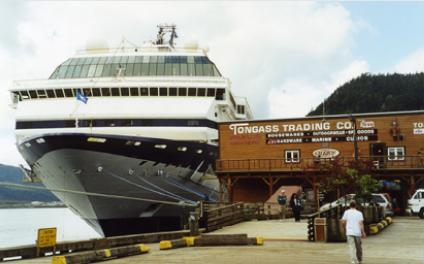 |
|||||||||||||
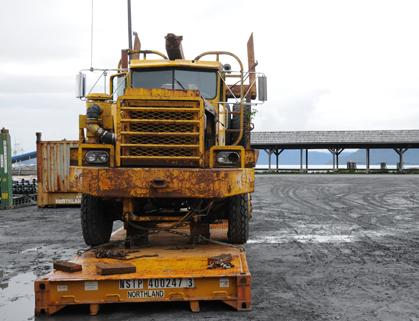 |
|||||||||||||
The new economy - cruise ship tied up in downtown Ketchikan, where I used to tie up my fish buying boat in the early 1980s. On a busy 5-ship day, the ships put 10,000 people on the streets of this town of 13,000! Wise residents have learned to take an outboard if they need to get from one end of town to another on a 5 ship day.. |
|||||||||||||
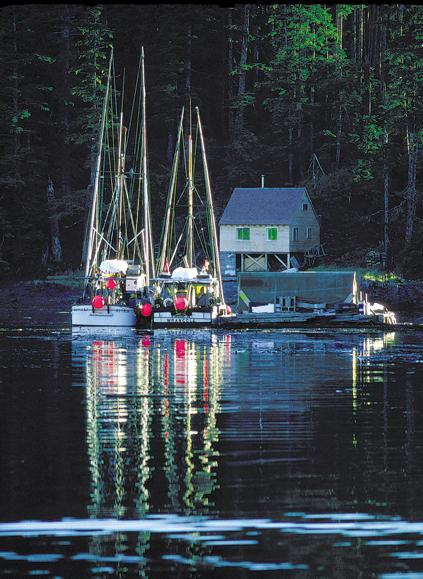 |
|||||||||||||
The last logging truck left in Wrangell sits waiting to be loaded onto barge to take it south. Since the shutdown of the big mills at Ketchikan and Sitka in the 80s and 90s, logging almost stopped in SE Alaska. But in the boom years of the 70s and 80s, loggers were making great money, millworkers got plenty of overtime, and life was good. In a sense there are two Southeast Alaskas - the one of the big cruise ports: Ketchikan, Juneau, Skagway, and Sitka, and the one of the smaller towns and off the beaten path roadless settlements, like Port Protection, in the photo at left. Supplies and folks come in by boat or floatplane and life is a lot slower where there are no roads. Often summers are a blur as residents try to make a year's living in a few short months by commercial fishing or tending to the needs of sportsmen. Winter is a slower time, with time for craft projects and visiting between friends and neighbors. Fortunately fish prices are strong now and commercial and sport fishing are able to support the smaller communities. |
|||||||||||||